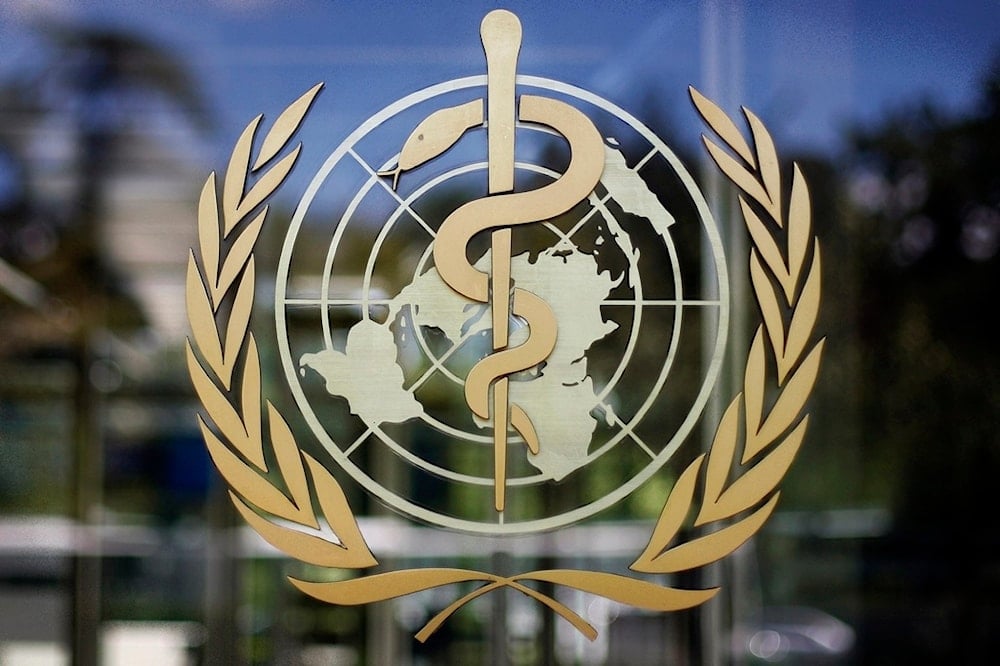China criticizes Trump's exit from WHO, Paris climate accord
China criticized President Trump's withdrawal from the WHO and Paris climate accord while calling for global cooperation on health, climate, and trade amid renewed tensions with the US over tariffs, TikTok, and Cuba policy.
-

The logo of the World Health Organization is seen at the WHO headquarters in Geneva, Switzerland, June 11, 2019. (AP)
China voiced its concern on Tuesday over the United States' decision to exit two key international frameworks—the World Health Organization (WHO) and the Paris climate agreement—after newly re-elected US President Donald Trump signed executive orders to abandon them.
On Monday, Trump, on his first day back in office following his previous term that ended in 2021, directed the US to leave the WHO, criticizing the organization's handling of the Covid-19 pandemic. He also announced the US would pull out of the Paris climate accord for the second time, signaling his administration's rejection of global climate action initiatives.
Addressing these decisions, Chinese officials expressed concern and reiterated their support for international cooperation.
"China will, as always, support the WHO in fulfilling its responsibilities… and work towards building a shared community of health for humanity," said foreign ministry spokesperson Guo Jiakun at a press briefing.
Guo reaffirmed the importance of the WHO, stating: "The role of the WHO should only be strengthened, not weakened."
Read more: China affirms it shared Covid info 'without holding anything back'
Regarding the US withdrawal from the Paris accord, Guo highlighted the global nature of the climate crisis, asserting, "Climate change is a common challenge faced by all of humanity. No country can remain unaffected or solve the problem on its own." He added, "China will work with all parties… to actively address the challenges of climate change."
Renewed US-China Trade Tensions Loom Under Trump
Trump's return to the presidency is set to reignite tensions between the US and China, particularly in trade and economic policy. During his first term, Trump imposed tariffs on Chinese goods, citing alleged unfair trade practices by Beijing. His successor, Joe Biden, continued targeting China, notably introducing restrictions on its access to advanced semiconductor technology.
During his campaign, Trump promised to raise tariffs even further if re-elected, potentially deepening economic friction between the two countries.
China has indicated its readiness to engage in dialogue to mitigate these issues. "Beijing is willing to strengthen dialogue and communication with the United States, properly manage differences and expand mutually beneficial cooperation," Guo said when asked about potential new tariffs under Trump's leadership.
Despite acknowledging "differences and frictions" in the relationship, Guo pointed out the substantial shared interests between the two nations, stating, "The common interests and space for cooperation between the two countries are huge. The two sides can strengthen dialogue and consultation in this regard."
Read more: China has a trillion-dollar advantage in any tariff battle: WSJ
TikTok, Cuba Spark Further Diplomatic Disputes
The status of Chinese-owned TikTok in the US remains uncertain, with the app granted a 75-day grace period to address national security concerns. Responding to a question on this issue, Guo called for a fair operating environment for Chinese companies in the United States.
Guo also criticized Trump's decision to reinstate Cuba on the list of state sponsors of terrorism. The move came shortly after Biden had removed Cuba from the list, a shift Guo described as erratic.
"Within a few days, Cuba was off the so-called list, then back on it, as if it were a trifling matter," he said, adding that the decision reflected the "hegemonic, high-handed and bullying face of the United States." He argued that the move cast doubt on Washington's credibility.
China, a longstanding ally of Cuba, reiterated its opposition to the US economic blockade on Havana and pledged continued support for its socialist partner.

 4 Min Read
4 Min Read








